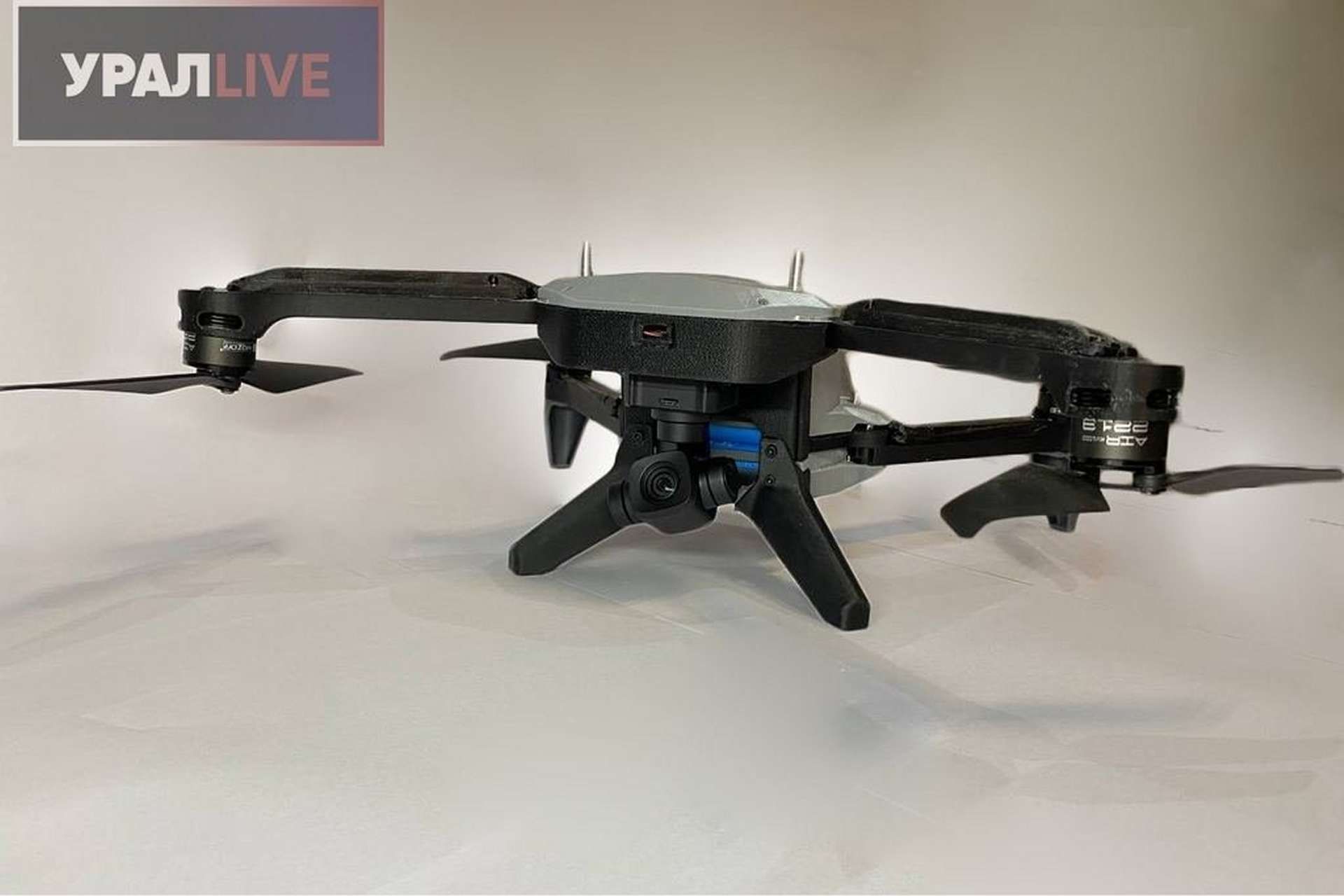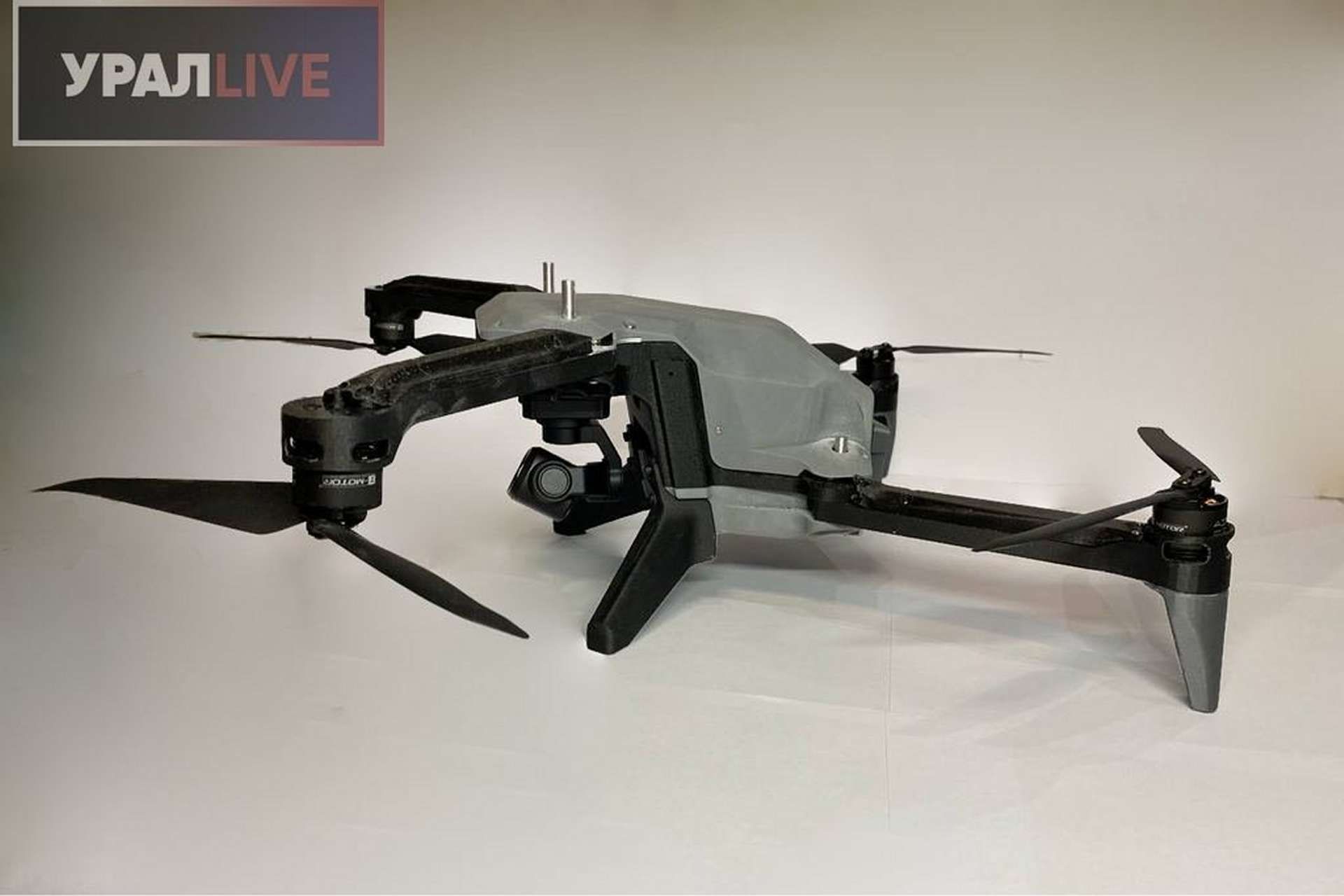Breaking news
Russia Could Replace DJI Mavic with Electronic Warfare-Resistant Stalker Drone.
An Ekaterinburg-based company has announced the development of the "Stalker" light drone, presented as an alternative to the widely used DJI Mavic drones, purportedly resistant to electronic warfare (EW). This new drone is set to be tested in Ukraine before entering mass production. The company claims that the "Stalker" can operate without being jammed or intercepted by conventional EW systems, a significant advantage on the modern battlefield.
Follow Army Recognition on Google News at this link

The "Stalker" drone represents a new attempt by Russian companies to produce a viable alternative to the DJI Mavic. (Picture source: Russian Company)
The "Stalker" drone represents a new attempt by Russian companies to produce a viable alternative to the DJI Mavic. Previous attempts by major Russian defense companies in 2022 and 2023 to create a similar substitute did not meet expectations. Despite these efforts, Russian soldiers, bloggers, and volunteers have expressed skepticism, noting that there is no real substitute for the DJI Mavic, which remains the preferred choice due to its reliability and advanced features.
The development of the "Stalker" comes amidst an intense electronic warfare environment in Ukraine, described as one of the most contested in modern warfare. Both Ukrainian and Russian forces extensively use EW systems to disrupt each other's drone operations. This environment has proven challenging for all types of drones, including commercial models like the DJI Mavic, which are vulnerable to jamming and other EW tactics.
Ukraine has been actively developing and deploying its own EW systems to counter Russian drones. For example, the Piranha AVD 360 system has been designed to protect against drone attacks by jamming their signals and intercepting communications. These systems are part of a broader effort to maintain control over the electromagnetic spectrum, a critical aspect of modern military operations.
Russian defense companies have previously claimed to develop DJI Mavic alternatives, but these efforts did not result in practical, field-ready solutions. The ongoing use of DJI Mavic drones by Russian forces underscores the difficulty in matching their performance and reliability. Despite the high hopes placed on the "Stalker" drone, the general sentiment among Russian military personnel and analysts is that replacing the DJI Mavic remains a significant challenge.
The upcoming tests of the "Stalker" drone in Ukraine will be crucial in determining whether it can live up to its claims of being EW-proof and provide a viable alternative to the DJI Mavic. If successful, it could represent a significant advancement in drone technology and electronic warfare resilience.
In summary, while the "Stalker" drone is a promising development, the history of failed attempts to replace the DJI Mavic suggests cautious optimism is warranted. The real test will be its performance in the highly contested electronic warfare environment of Ukraine.

The "Stalker" is a light drone, purportedly resistant to electronic warfare (EW). ( Picture Source: Russian Company)



















